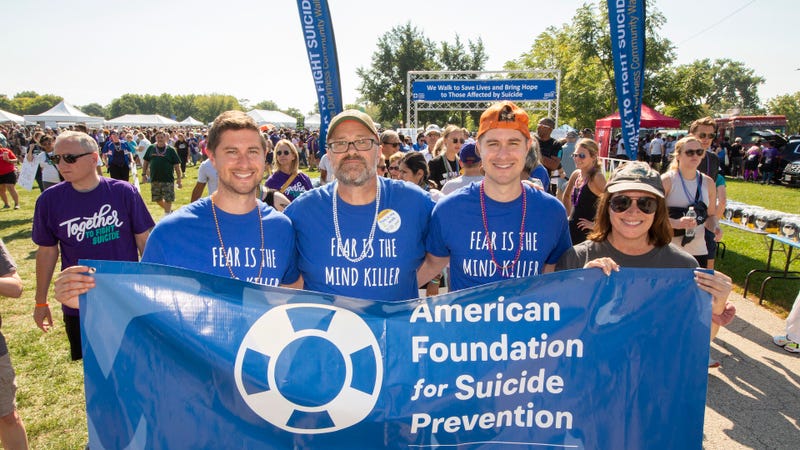
In observation of Pride Month, Audacy’s David O'Leary welcomed American Foundation for Suicide Prevention (AFSP) Chief Medical Officer, Dr. Christine Moutier to discuss the importance of mental health care and being there for those in need, specifically within the LGBTQ community.
LISTEN NOW: Dr. Christine Moutier shares facts and resources regarding LGBTQ community and mental health
“With regard to any population, including the LGBTQ community, it’s not one’s identity itself makes you suffer, or puts you at risk,” Dr. Moutier stated at the beginning of the conversation. “It’s the experience that one has based on their identity in the society and in the world, and in the culture we live in.”
While there have been some positive strides towards acceptance, representation and change, members of the queer community still face an uphill battle, which takes a toll on the majority of the community’s mental health. As they continue to battle for acceptance in society, Dr. Moutier says being accepted by those closest to them can make a life-changing impact, especially for the younger generation.
“If a young person is coming to realize and getting in touch with their own sense of queer identity — depending on the family they live with, the home environment, the larger community, maybe the faith community — all those things can influence what they even find acceptable to think about themselves,” Dr. Moutier explained.
While many LGBTQ individuals can struggle with the state of their mental health solely based on their experience as a queer individual in an unaccepting world, Dr. Moutier reminds us some may have genetic makeup that can make their struggle even more difficult — a struggle that would be there whether they identified as queer or not.
Dr. Moutier takes a moment to remind us that being there for struggling individuals — LGBTQ or not — and creating a safe place and trusted relationship is one of the best things you can do. Recognizing the conversation can be a hard one to initiate, she offered her best advice to those looking to confront a loved one they believe might be struggling.
“The first thing is just really trusting your gut instinct,” she stated, encouraging listeners to initiate conversation if their instinct tells them to. “Don’t write it off that it’s somebody else’s job [or say] ‘I’m not a trained mental health professional.’”
“Establish a safe, caring, supportive conversation… if someone is struggling, remember the automatic instinct that we have as human beings… when we feel vulnerable, we withdraw… As the supportive person, you need to actually say, ‘I’m here having this conversation with you, simply because I care and I want to support you and it’s a judgement free zone because I’ve been through stuff too.'”
For more information surrounding tough mental health conversations, being there for the ones you love or seeking help yourself, listen to Dr. Moutier's full conversation with Audacy’s David O’Leary above.
Audacy's I’m Listening initiative aims to encourage those who are dealing with mental health issues to understand they are not alone. If you or anyone you know is struggling with depression or anxiety, know that someone is always there. Additionally, the Suicide & Crisis Lifeline is available 24 hours a day, 7 days a week at 988. Find a full list of additional resources here.